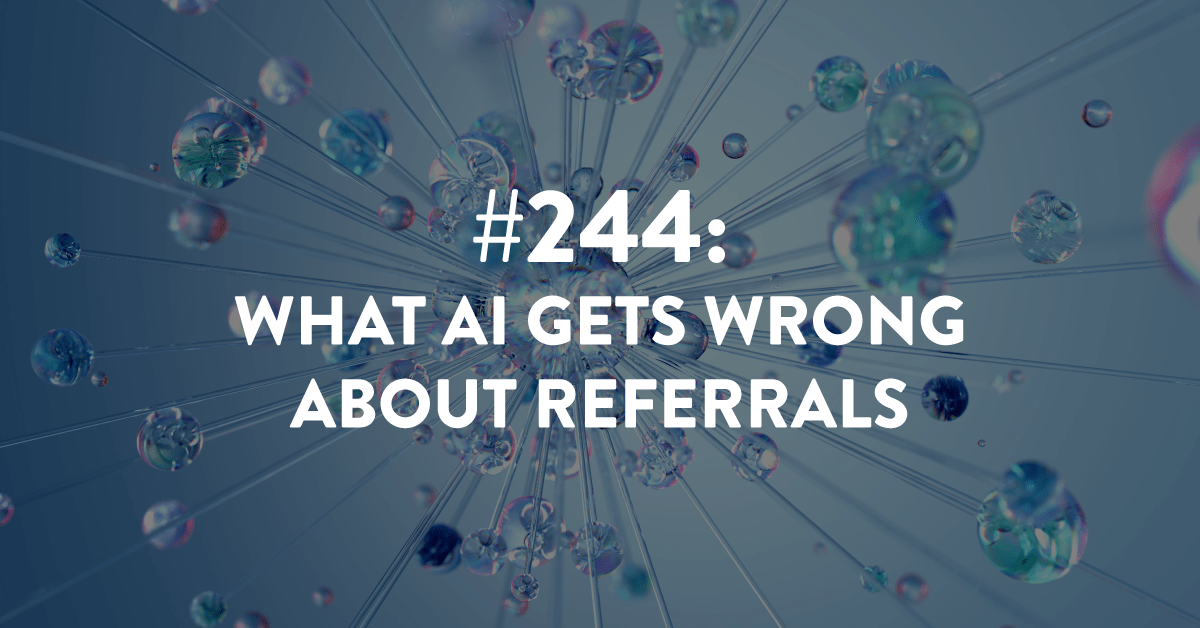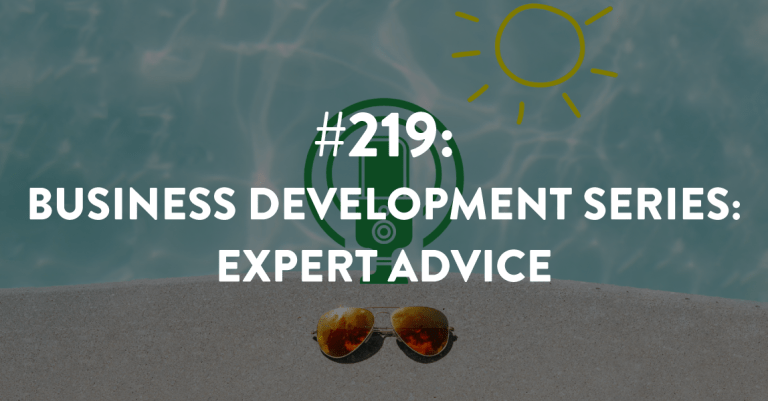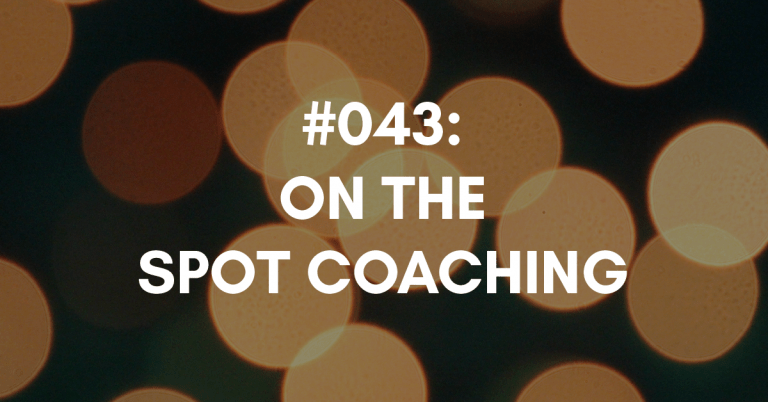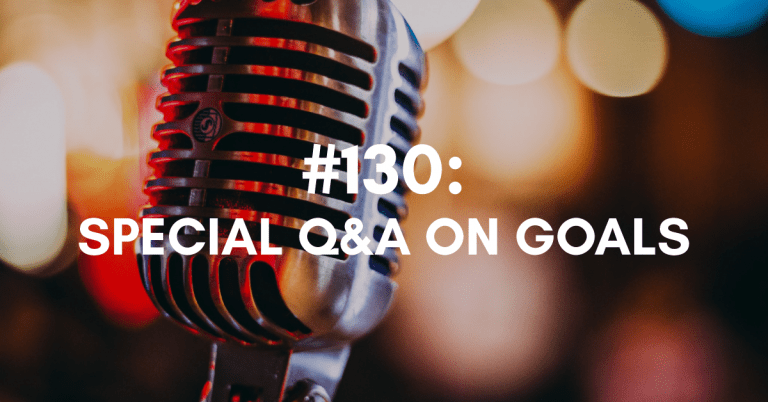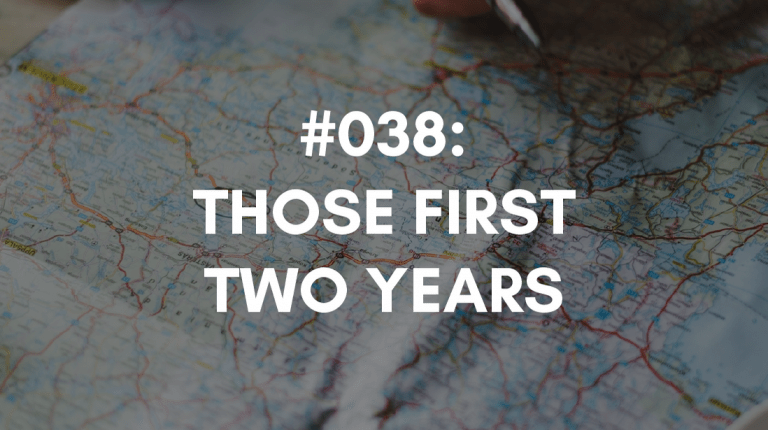Ep #244: What AI Gets Wrong About Referrals
Can you go a week, or even a day, without encountering AI and ChatGPT in articles, emails, or conversations? If not, you’re not alone. In this episode, I will be sharing AI’s shortcomings regarding referrals—because you can’t rely on AI for everything… yet.
As someone who is not an early adopter (and barely a late adopter), I’ve been doing research on the future implications of AI and ChatGPT, and when it comes to AI, I see two camps. One views AI as the destruction of jobs, while the other sees it as an enhancement tool. Listen in to hear my thoughts on ChatGPT’s advice for increasing client referrals and why you should be focusing on referral strategies based on science.
Links Mentioned During the Episode:
Sign up now for the 3 Day Re-Engagement Bootcamp to learn the exact strategy of how to re-engage your inactive referral sources (aka someone who doesn’t refer you anymore). Each day you’ll receive access to a training video (less than 10 minutes) with resources provided. And then can join me for a bonus day for live Q&A where you can ask all of your questions! The 3 Day Re-Engagement Bootcamp kicks off February 21. Snag your spot now!
Next Episode:
Next episode is #245, and we’re going to talk about pinballs and bowling balls. (Don’t worry—this directly relates to referrals!)
Download The Full Episode Transcript
Read the Transcript Below:
Stacey Brown Randall: Have you been able to get through a week or even a day without reading an article, receiving an email, or having a conversation about AI, and the rise of ChatGPT? No? Don’t worry, we’re all in this together. Today’s episode is about AI and what it gets wrong about referrals. Well, at least for now.
Hey there, and welcome to episode 244 of the Roadmap to Referrals Podcast, a show about helping you build a referable business. I’m your host, Stacey Brown Randall.
Okay, I need to start this episode with just a handful of disclaimers because I think you need to understand where and how I’m approaching this episode and this topic by just understanding a little bit more about me to help you put everything into context.
First and foremost, I will admit that I am not an early tech adopter. I’m barely a late adopter if I’m being 100% honest. I am the only person in my family that does not own anything Apple, and I’m pretty sure my Android phone is like of a version eight, and I don’t even know how old it is — years and years old, I am sure.
I know this because I constantly get text messages and emails of notifications and promotions that I am well overdue for an upgraded phone, and I can get the best deal.
So, I recognize that like tech’s not my love language, like I don’t love tech. It’s funny and hilarious and I’ve talked about this before in the podcast, you’ll probably remember it if you’re a longtime listener that most of my business runs on tech, and my ability to learn to use tech, I have kind of done begrudgingly but because I had to.
So, when you join like my coaching program, Building a Referable Business or any of my online programs, all of that’s run online. Whether it is the, I’m live on a Q&A session, it’s still through Zoom. Or if you’re actually watching one of the trainings or one of the programs online, that’s all through a password protected website. There’s lots of tags and triggers and automation and things that happen within my business.
And so, whereas I don’t love tech, I definitely know how to harness it for my benefit and to get it to do most of the time what I want it to do, hence this podcast. I mean, other than the fact that I spend time crafting what I’m going to say on each episode, everything else seems to feel very tech-related when it comes to the production of this podcast.
So, first thing I just want to start with as my disclaimer is that I’m not an early adopter and I know that. I’m not an early tech adopter. It’s okay, I still love me.
The second thing I want to say is that when new things come out, sometimes I say a prayer for a quick death. Totally true. Being honest here, when Periscope came out and then later Clubhouse, I didn’t jump on those bandwagons, I literally just said a quick prayer to like, “Lord, please let these things have a quick death so I don’t have to learn them, and they could just go away.”
No, I don’t say that mean towards the people who invented or worked at or like made Periscope and Clubhouse happen, those are just my two examples. When those two came out, I was like, “Oh my gosh, not another platform, not another thing to learn, not another way to share content, not another way to be on social.”
Like I just think there’s a lot, there’s already a lot, do we really need another? Nothing against people who want to go out there and create their own. That’s just how I feel, hence, that probably goes back to the fact it’s because I’m not an early adopter.
And the other thing I want to say specifically for this episode is that I haven’t spent much time investigating ChatGPT, but I have been doing a good amount of research on future implications and other people’s opinions on it.
So, while I haven’t spent a lot of time like in ChatGPT, like testing it out and trying it out myself, I have definitely been paying attention to all the hubbub and all the things that are happening around it, and because of it, and the opinions that is going down, so to speak, because of the continued rise of AI particularly with the explosion of this particular one, ChatGPT.
And the fourth disclaimer I want to give is that I believe this episode should just have a big “for now” attached to it. Because if AI does what AI is supposed to do, which is ever-evolving, then it’s going to continue to evolve.
And so, some of the things I say now are specific to AI or ChatGPT, like I guess AI just in general of like early 2023. And so, I don’t know if this would be the same thing, I would be saying in early 2024 or 2025, I don’t know. I don’t have a magic eight-ball that actually works, right?
So, everything that I’m saying is very relevant and very specific as well though to right now, which means the things that I’m going to talk about in this episode as it applies to AI and what AI gets wrong about referrals, I do feel like this needs this little disclaimer of for now, maybe it’ll never get it right, maybe it will. Right now, it’s not doing a great job. And that’s what I want to discuss today.
So, just think through my disclaimers, keep that as you’re like your grain of salt. As you listen to the rest of this episode.
There seems to be two camps when it comes to AI. It is the destruction of all we hold near and dear. Mainly for those with jobs or companies like in computer programming or marketing, writing, content generation, et cetera, versus the other camp which is, “Hey, this is an enhancement to our lives. This is an enhancement to make, for example, content generation easier or computer programming easier.”
So, I do think depending on who you listen to, who are the people you follow on LinkedIn, it’s probably what’s filling up your feed. Whose email list are you subscribed to? It’s probably their stuff, if they’re talking about this, it’s filling up your inbox, and they think that’s probably what you’re hearing.
And I seem to be getting information from both camps. Like I’m definitely seeing this from both camps, and I just want to say this, I did receive an email kind of like not early on, but more recently about like, what’s going on with AI and some of this stuff is like fear mongering. Like I’m reading this and if you have to put a PS in your email that says “PS, this isn’t fear mongering,” it kind of feels like it probably is just a little bit.
Like somebody sent an email to me that said artificial intelligence is going to put 90% of marketers out of business. I mean, maybe he’s right, he’s probably not. But like anything that disrupts an industry as business owners, the one thing we learn to do, whether we want to or not, if we want to survive, is we learn to evolve.
And so, we evolve and usually, harness the technology tools that are available to us to make our jobs easier and better. Or in some cases, like me in Periscope, we just wait till it goes away and loses popularity. We just write it out because we have longer staying power. I’m not saying that’s the case with AI, that’s just my little personal joke that I have with Periscope.
So, I do think depending on who you follow, what industry you are in, where you get your information, you are probably getting information that maybe both of these camps or you’re clearly seeing it as one versus the other.
So, again, those two camps being that AI is the destruction of all things we hold near and dear, mainly for people who are in jobs or run companies that are in like computer programming, marketing, writing, et cetera.
Versus, “Hey, this AI that’s becoming more and more readily available and easier to use is going to be enhancement to making your life easier.” Whether that is with writing or content generation or computer programming, et cetera, and all the other ways.
But here’s the bottom line, right now, this is where that for now, here’s the bottom line for now based on right now, for AI, and AI programs like ChatGPT of what it’s not doing. And what it’s not doing is high level thinking or evoking emotions yet.
I just feel like that probably needs to be put in there though, hopefully, I’m wrong and the computers can never actually feel emotions the way that we do and then express it the way we do. That’s just my personal hope, maybe I’m crazy some of you guys can tell me how you feel about that later on.
But that’s the bottom line. AI isn’t doing high level thinking and it’s not evoking emotions. Let’s talk specifically about something like ChatGPT — if ChatGPT is using what is available out there in the interweb to pull its information, then it makes sense that it’s probably regurgitating a lot of the same information that’s been out there forever, within our (I don’t know) crazy overfilled landscape that is the internet and content and blogs and social media platforms and SEO, and like all the things.
Like if it’s just pulling information in that way, it’s going to regurgitate more than it’s actually going to apply high level thinking or knowing how to evoke emotions when it comes to any particular topic or subject.
And so, as just an aside, let me just say this really quickly. Like if you’re on my email list, then a couple weeks ago, you received an email from me with a subject line that said, “This is what I yelled at my kids’ wrestling match.”
And I told a story, not very proud of the story, but it’s a true story of how I made a fool of myself at one of my kids’ wrestling matches. It’s my very first wrestling match I ever went to, probably should never be invited back. And I’d never seen wrestling before, and it was foreign, and it went against every one of my mama sensibilities of like what my child should be subjected to watching this wrestling thing happen.
But this was foreign to me. It was brand-new to me. I never watched wrestling in high school. Like I’d just never really seen a wrestling match. I mean, I’d seen like WWF fighting, but like never seen a wrestling match of children. I don’t care if you’re in high school, you’re still a child and my child was out there.
And I told this story in my email about making a fool of myself at this wrestling match and being very foreign and feeling out of place, and then related that to how a lot of people feel when it comes to referrals, when they learn those old school referral triggers or the old school referral tactics of how to generate referrals. It’s the things that feel that feel very off and awkward and foreign to you. Like, hey, you’ve just got to ask for them or pay for them, or always be networking and being seen all the time by people.
And I was able to relate the bonehead mistake that I made at my son’s wrestling match to referrals. I’m just going to go out on a limb here as I don’t think AI is capable of that yet. Whether or not it is capable of that later on in life, I do not know. But that’s high-level thinking, that’s evoking emotion, that’s telling stories and truths, and relating it to the work that you do.
And I will be honest with you, that email so far, of all the emails I’ve sent, they come out on Tuesdays. If you’re on my email list, you know they typically come out on Tuesdays unless I’m behind by a day or two.
They typically come out on Tuesdays, that one’s gotten the best response, that one’s gotten the more people hitting reply on it and be like, “Oh my gosh, I wrestled in high school.” Or “Oh my gosh, I remember when my child first wrestled.”
And it’s like, I’ve totally made that mistake, like watching some other sport for the first time or watching my kid play another sport for the first time. It got more response and connection with the people who actually take the time to not only receive my emails, but actually open them up and read them.
And I just don’t think you can teach artificial intelligence that. It doesn’t know how to do that yet, or it doesn’t know how to do that now. And I don’t know if you’re going to be able to teach it how to do that later on.
So, I say all of that as just wanted to giving an aside of like how I’m seeing this happen in my world, and recognizing that let’s take this back to referrals. Recognizing what AI can’t do when it comes to evoking emotions or it comes to this high-level thinking about a particular topic.
So, a buddy of mine sent me what ChatGPT produced when they had typed in at his firm how to increase client referrals. So, he typed, “Hey, how do I get some client referrals? How do I increase my client referrals?” And ChatGPT like gave him a marketing plan, gave him a business plan, I don’t remember what they called it. Gave him like a business plan.
And as you can imagine, he found it hilarious and forwarded it on to me and I was like, “Oh my gosh, this has to be a podcast episode.” And so, I looked over what ChatGPT had said is the way to increase client referrals, and I give its strategy a D, really should give it a D minus, but I’m feeling a little friendly right now, I guess, so I’ll just give it a big old D.
So, let me break down for you the three like things that I saw within the ChatGPT’s response to how to generate client referrals, how to increase client referrals, why I gave it a D. Let me break down the three things that I saw as to why it deserved a big old D.
Alright. So, the first one, it’s giving very generic advice, but that’s what it does. Isn’t that a little bit about what AI is doing right now? It’s like taking everything that’s out there in the world and it’s just regurgitating it super-fast, way faster than you could look it all up yourself, but it’s still a regurgitation of the advice that’s always been out there.
And so, it’s giving very, very generic advice and that’s generic advice that isn’t going to actually move the needle consistently when it comes to your referrals, it’s just not. Like the generic advice it says, “We will give exceptional client service.” Well, shouldn’t you be doing that anyway?
And if we all just had to give exceptional client service, wouldn’t we all be drowning in referrals? Because we know, particularly for those of you who are part of my world and a part of this podcast, or you’re in one of my programs, we know that just being amazing and just giving exceptional client service does not necessarily generate consistent ongoing referrals. It’s going to get you some, absolutely — is not going to get you some consistently.
So, some of the other generic advice was like build relationships by regularly communicating with your clients. Really? Is that all it takes? Is that I can just build relationships that are going to produce referrals for me by just regularly communicating with my clients. Again, if that were the case, that’s what we’d all be doing, but that’s not going to actually build referrals.
Do I think you should be doing regular communication with your clients? Yes. Like inside BRB, Building a Referrable Business, my coaching program, I mean, I do live question and answer sessions almost every week, at least three weeks at almost every month, I am doing a live Q&A, so I’m having regular communication with them. And then in addition to that, I still send a monthly email like, “Hey, here’s what’s coming up for the month, here’s what you need to be aware of.”
So, I’m communicating with my folks, you’re probably communicating with your clients. And you’re probably doing it on some level regularly, but that doesn’t mean those regular client communication are going to actually produce referrals because there’s actually no referral seed language being used in any of that. So, that wasn’t part of their advice. So, it’s not actually going to generate referrals.
And then another piece of generic advice, which is not bad advice, which is probably why it didn’t get an F for its grade, it got a D, is its track your referral sources. And I was like, “Go on ChatGPT, get one right.” It was like the only one. But like it’s right, you should be tracking your referrals and your referral sources. And that is generic advice, and you hear me talk about it because it’s a fundamental piece of advice.
While it is generic and just about anybody and everybody who teaches referrals will tell you, you probably should track this stuff, because you should probably track in a lot of areas in your business, not just referrals.
So, whereas that is generic advice, that’s not like, “Whoa, do this and all these referrals are going to happen.” While it is generic, it is also foundational. But of course, when I see people out there who have either recently gotten into the world of trying to teach others how to generate referrals or they’ve been in this world longer than me, this is kind of like a foundational piece that we all talk about, which is like, “Hey, you should probably track this stuff. You should probably track your referral sources.” But it is generic advice.
Okay, let’s move on to point two as to why they got a D.
Hey there, pardon the interruption. Back at the beginning of the year, I did an episode on referral strategies that are the must-haves for 2023. I want to add another referral strategy to that list, and I want to teach it to you.
It’s how to reengage your inactive referral sources. An inactive referral source is someone who has stopped referring you, or it’s been a while since they last referred you like two or more years.
If you want to learn the exact strategy of how to reengage them, then join me. On day one, you’ll learn how to identify your inactive referral sources. On day two, you’ll learn the three reengagement tactics and decide which to apply to each of your inactive referral sources. And then on day three, you’ll learn how to start the deployment.
Then you can join me for a bonus day for a live Q&A as we discuss everything you’ve learned, including specific situations you may find yourself in, tweaks you’re considering, questions that you have, and what happens next.
I’m teaching this all in the three-day reengagement bootcamp. It’s coming up starting on February 21st. So, snag your spot now at staceybrownrandall.com/bootcamp. It’s our three-day re-engagement bootcamp, and it starts again, on February 21st. So, days away, make sure to sign up at staceybrownrandall.com/bootcamp.
Okay, so here is the second reason why I gave ChatGPT a D, as the grade on answering the question, how to increase client referrals. So, the first reason was it gave very, very generic advice. Okay, what’s the second reason?
The second reason it earned a D is because it included tasks that don’t directly generate referrals. So, in the ChatGPT, the plan that it provided of the things it was telling you to do to generate referrals, those are things that actually don’t generate referrals. They’re commonly confused to generate referrals, but they don’t.
So, for example, it talked about online reviews and how you should respond promptly to negative comments. Online reviews don’t directly generate referrals. Should you have them any type of review or testimonial, whether it’s video online, written on your website, whatever, should you have them? Oh, heck yeah, you should have them. They’re social proof. They show the case studies of the work that you’ve done with your clients and why people trust you. So, absolutely, you should have them, but they don’t actually directly generate referrals.
Another example that ChatGPT suggested was social media. Using social media to show off how happy our clients are. I’m assuming that’s meeting within the testimonials. But using social media to show off how happy our clients are. And that would generate referrals, but it doesn’t.
Online reviews, testimonials, you posting on social media, these testimonials or reviews or whatever it is, those don’t generate referrals directly. It helps with lead conversion, not that you’re actually going to get referrals from them.
And what I mean by that is that if someone’s making the decision to work with you, and then they go read your online reviews and they’re positive and the negative ones you’ve responded to or they’re seeing the testimonials on your website or on social media and they’re seeing like they’re watching and reading your testimonials and watching the video testimonials, whatever it is that you have for online reviews and testimonials, and they’re seeing that — that’s helping them make the decision to say, “Yes, I want to hire you.”
What it’s not doing is getting them to think that they’re going to refer you. They’re just not one and the same.
So, because this marketing plan, this business plan included tasks that don’t directly generate referrals, but acted as if it did. And of course, as you can imagine, that’s where I have an issue with it. It said, “We’ll get more referrals if we promptly respond to negative comments on our online reviews and we use social media to show off how happy our clients are with us.” And that’s going to get us referrals.
It was like the second point of the plan. I’m like, “What? No, it will not, because it doesn’t directly generate referrals.” What those things do (testimonials, online reviews, social media) is help with lead conversion. They don’t necessarily trigger someone to think to refer you, and certainly not consistently.
And the third reason why ChatGPT got a D in its ability to tell you how to get referrals, and this is probably … with this one, I should have been like giving it an F. I’ll be honest with you. I feel like this is the one that really, I was like, “Are you kidding me?”
But again, it just kind of goes back to point one where you talked about generic advice, but the third point in its plan after you like take amazing care of your clients and regularly communicate with them and do some stuff on social media and with online reviews and testimonials — the third thing it said was, “You need to start a referral program and you need to incentivize for referrals. Give discounts on future services, offer a commission or give gift cards.
What? No, no, no, no, no, no, no, no. If you are a part of my world, you know that this referral program concept really can put me off on a soapbox and this is already a longer episode than I have planned, so I’m going to keep it short.
I’m not going to go on a soapbox for you guys, but you know that I don’t believe you need to be incentivizing. And the strategies that I teach that my clients are wildly successful with do not include incentivizing for referrals.
That’s the whole concept of generating referrals naturally. What I teach is doing it without manipulating, without incentivizing, and without asking, and also without networking all the time to be seen all the time and to be without having to be promotional in gimmicky as well.
So, the fact that the advice was like, hey, by the way, and then also start a referral program, and that’s how we’re going to get some referrals. Actually, for a lot of folks, that’s going to backfire. And in some of you listening, you can’t even do this, it’s illegal. Like you can’t give like commissions and stuff in financial advisor or attorney world. Like what?
And this is really funny because my buddy who sent this to me is a financial advisor. I was like, if you followed this, A would you not get referrals, and B, you would be doing something illegal, because you can’t be giving discounts and commissions and things like that. Like I know there’s nuances to this, but that’s like my overlay, when you think about this from certain industries, like in the legal field with attorneys or financial advisors and financial services.
But here is probably the one killer statement that I was like, “Oh my gosh, someone’s going to see this, and I wonder if they’re going to believe it” And then I know they’re going to be super, super disappointed at the end of it. This is the killer statement, it ended this business plan with about how to get more referrals.
We’re going to be able to get more referrals — I think it said something to … here we go: “By focusing on exceptional service and building strong relationships with our clients, we believe that we can significantly increase the number of referrals we receive.”
Let me read that bad, bad statement again. “By focusing on exceptional service and building strong relationships with our clients, we believe that we can significantly increase the number of referrals we receive.”
No, it will not. Do you need exceptional service? Yes. Do you need strong relationships with the people who can refer you? Yes. But will those things actually get you referrals consistently? No. You need different strategies.
You need to understand the science behind how referrals happen and then you need to have strategies that are built with the science as a part of them, understanding the role that relationships have, trust has, behavioral economics has and language has in your ability to generate referrals.
So, these are all the things that AI got wrong when it comes to referrals. Not sure if it’ll always get it this wrong, but it failed. Okay, got a D because it gave like one or two good pieces of advice like track your referral sources, but really, it should have just failed.
The show notes episode for this episode can be found at stacybrownrandall.com/244, and don’t forget, Stacey has an “E.”
And final reminder before I let you go, don’t forget to snag your spot in my three-day bootcamp where I’ll teach you the exact strategy I teach my BRB members on how to reengage referral sources, those folks who have stopped referring you. It’s a perfect task for you to do in first quarter.
Coming up next week as episode 245, and we’re going to be talking about whether or not you’re a pinball or a bowling ball. Don’t worry, it directly relates to referrals. Until then, take control of your referrals and build a referable business. Bye for now.

